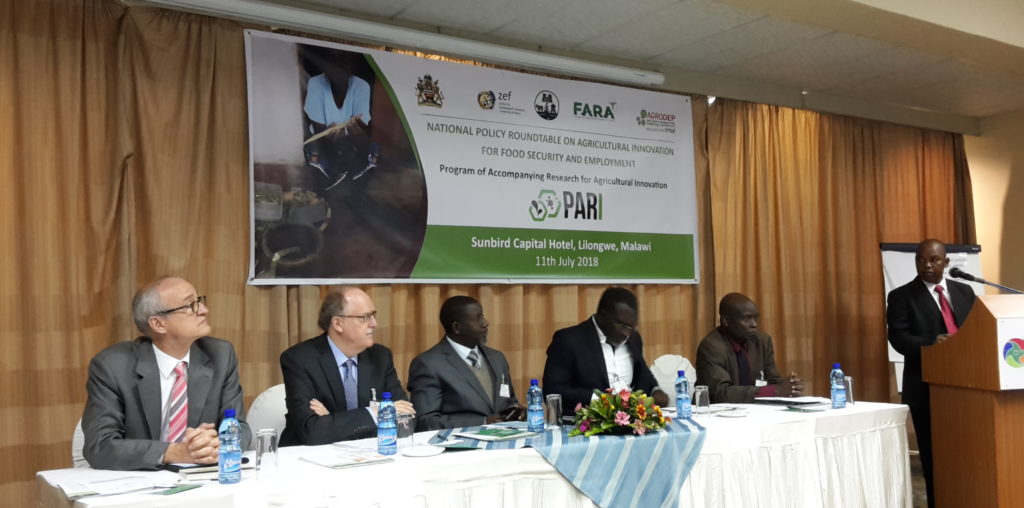At a national policy workshop organised by ZEF, FARA and DARS, high-level representatives from the public, private and non-governmental sectors gathered in Lilongwe on 11-12 July to discuss how innovations could spur development and job creation in Malawi’s agriculture sector. The question of how to harness the capacities and motivation of the youth in the agriculture sector ranked particularly high among the policy priorities discussed.
Participants concurred that in order to build the resilience and profitability of the sector, diversification of agricultural production as well as higher value addition were crucial. Maize dominates all food crops in Malawi while tobacco and sugarcane are the most important export crop. Citing the results of a modelling exercise by IFAD and IFPRI, Dr Kondwani Makoko (DARS) highlighted cassava and rice as suitable for expansion while selected oilseeds, legumes and horticultural products could be promising additional crops. Investments in the livestock sector, in particular poultry and small ruminants, would also offer significant opportunities for smallholder farmers. Several of these value chains are already being supported by the Green Innovation Centre funded by the German government and operated by the GIZ in collaboration with local partners.
The importance of promoting mechanization of agricultural production and processing was widely acknowledged. While the use of machinery has been growing in Malawi, usage remains low overall. Dr Oliver Kirui (PARI/ZEF) stressed that education and skill development need to play a central role if mechanization and modernization are to be achieved. In particular vocational training needs to be improved to equip the youth with the technical skills required to operate productive farms and find decent employment along agricultural value chains.
To support the widespread adoption of locally adapted technologies, farmers themselves can be a valuable source of innovations. Timanyechi Munthali (DARS) presented some of the winners of the PARI Farmer Innovation Contest held in Malawi in 2017. Farmers had proven to be particularly innovative in the areas of animal husbandry, such as treatments for Newcastle disease and African Swine Fever, and crop management, e.g. pest and disease control measures, weed control and grafting methods. The contest also showed that local extension agents can play an important role in documenting and disseminating promising innovations.

